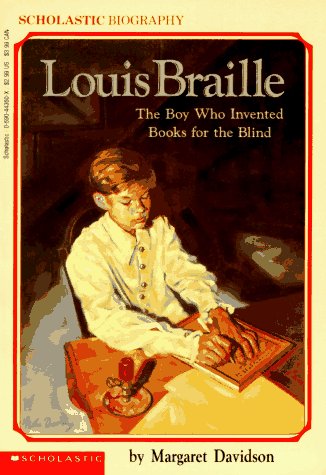Bonus Reines: from The Holloway Series in Poetry
[Ariana begins around minute 16, if you want to skip the intro.]
Spork’s Six New Books
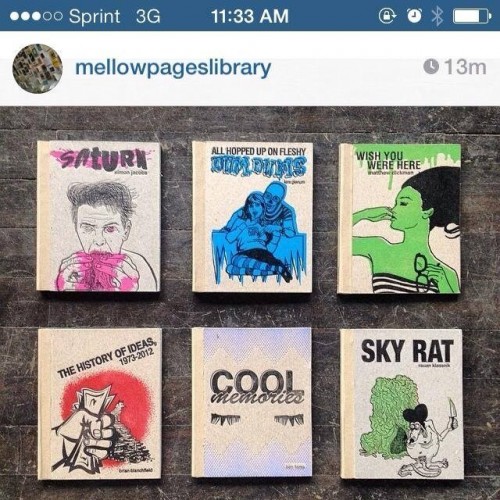
available from Spork now — & at Mellow Pages
The handmade books of Spork Press are spreading across the literary universe, leaving the Spork collective ‘more psyched than ever.’
On any given evening, in the middle of any given week, just off of Fourth Avenue, you might stumble across the editors of Spork Press as they dutifully work on their next set of printings.
They might have music blaring out of the carport in which they work while they press ink onto boards using a half-century-old machine. They might be sipping beers, mixing and transferring music mixes onto cassette tapes. They could be listening to audiobooks, evening out the edges of their work—literally, with a belt sander.
(…..from The Tucson Weekly, “An Analog Experience”)
Yes, Spork makes beautiful books and recently debuted their 6 newest creations (“artifacts”) at AWP here in my backyard (Seattle, which is just across the lake from Kirkland, home of Costco, etc). The Tucson Weekly reports that AWP was a “huge success” for Spork, selling “more than 400 books.”
So, anyways, here is a bit of a roundup of Spork’s 6 new books with a bit of verbiage about each book and/or the author. (and, yes, I’m one of these 6 authors so if you think this is uncool, well, go ahead and sue me).
****************
2013 Holiday Shopping Guide: Poetry Recommendations

Last week I did a Fiction Shopping Guide and a Nonfiction Shopping Guide. Now I’ve got this list of poetry titles published this year, for all you last minute shoppers.
When compiling the nonfiction list I limited myself to twenty titles, even though I could’ve easily made it thirty or fifty with the amount of good material published this year. For the fiction list I bumped the number to thirty, but could’ve easily exceeded it. For the poetry I decided on thirty-five. I’ll present them in no particular order. (N.B. I’ve omitted works published by fellow giants, which was hard considering the awesomeness of Klassnik’s The Moon’s Jaw or Lorig’s NODS. to name but two.)
These obviously represent my own interests and therefore omit plenty of titles I’m sure were great. Also, in the interest of transparency, my click-throughs use my Amazon Affiliate number, which means that I receive pennies when you click on the titles and end up purchasing something, pennies I save up and use to buy baby supplies.
Dress Up with the Contagious Knives
Besides possessing a really pretty first name, Joyelle McSweeney has earned a place as one of the top three poets presently (the other two are Ariana Reines and Chelsey Minnis). Totalitarian, deathy, and melodious, Joyelle has composed a Hunger Games-like novel, an essay about Ronald Regan, and a play, the Contagious Knives, that’s rich in rancor and in rhymes.
The Contagious Knives displays the diction of a nimble rapper and the pitch of an impassioned preacher. As the play’s hero, Louis Braille, tells Bradly Manning, “No indian giving, no taking it back, / except when you take it from me, / Indian, Chinaman, Brad-lee.”
Obviously, Joyelle needs no help decking her characters. Louis’s costume consists of pink panties, a Target t-shirt, a Victorian sailor suit, liquid eyeliner, and more. But what if it was required to dress the Contagious Knives’s characters in designer labels for a French Vogue editorial? What would they wear then? Well, maybe they’d trot out on stage in these things:
Boastful, sassy, and violent, Joyelle’s Louis Braille is a boy for boys to admire. Some of Louis’s first lines are: “I’m a very special cunt. / A very special fucking cunt. That’s what daddy always said / (wink wink).” Not humble about inventing his eponymous language for blind boys and girls, Louis likens himself to napalm and hints at an affiliation with Nazis by repeating “Not see!” four times in a row.
December 12th, 2013 / 1:13 pm
“WE DO WHAT WE WANT” – A Conversation with Spork Press
The Southeast Review will publish a review-essay I wrote looking at recent books by Carrie Lorig, Ariana Reines & Carina Finn. After I finished the review, however, I realized I was at least equally interested in the aesthetics & mechanisms of the publishers behind these books, as I was in the content. As publisher of H_NGM_N, I’m often making decisions & choices, trying to forge ahead, trying not to fall behind. And while I may know why I do what I do, it occurred to me that I know very little about why other people do what they do. So, I reached out to each of the publishers with a very targeted back-&-forth interview exchange in mind, a few quick questions to get behind the scenes a bit which I hoped would also help inform my reading of the works they produced.
In the following interview (conducted sporadically from early July through early September, 2013), I talk with the shadowy secret society known as Spork, publishers of Thursday by Ariana Reines. What started as an email exchange jumped almost immediately to a Google Doc, allowing all of the various tines of the Spork to check in, to comment, to correct, to dissemble.
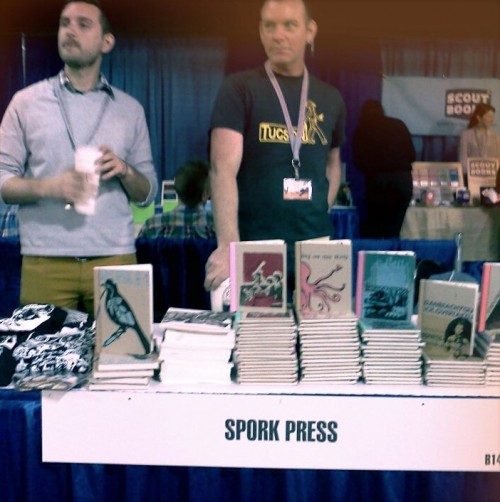
Baby Marie-Antoinette Opens Up Upon Simone Weil, Gang Rape, and More
Last week, I published a tiny story by Baby Marie-Antoinette, one that was titled Gang Rape Me Now Please.
Then, last nighttime, while the world acted woeful (as usual), Baby Marie-Antoinette sent me a telegram, telling me that she had things to say to me.
When a girl who, at less than 42 months, already has a biopic starring the striking Kirsten Dunst wishes to say things to you, then obviously you heed that.
That’s what I did.
In a vintage skirt (because boys can clad themselves in skirts) and a St. Louis Cardinals sweater (because they’re the best baseball team ever, and the LA Dodgers are gay), I met Baby Marie-Antoinette (as well as her mommy) at a McDonald’s in Midtown.
Baby Marie-Antoinette munched on a vanilla ice cream cone. I did the same.
BMA (Baby Marie-Antoinette): Thank you very much for meeting me.
Me (M): You’re very welcome.
BMA: My mommy articulated that it’d be agreeable if I articulated further about gang rape and such, and I agreed.
M: K…
BMA: So… you should probably inquire further…
M: Why are you so struck by gang rape?
BMA: I don’t believe in autonomy, freedom of speech, freedom in general, liberty, individual rights, or any such stuff.
M: Why?
BMA: I am Catholic. I absolutely believe in God, as God will make it so that I am the Queen of France. God cares for me. Another girl who God cares for is Simone Weil. She is a French girl who is sort of looked down upon because she didn’t spend her nights at white people bars on the Lower East Side.
M: What does that mean?
BMA: She didn’t got nuts for the human body or anything that humans nowadays (or in the olden days) deem progress. In Simone’s notebooks, she states, “We possess nothing in this word other than the power to say ‘I.’ This is what we must yield up to God.” For Simone, all the rights that people are roaring for are abhorrent. They are as unheavenly as a croissant without warm cherry cream in the center. According to Simone, “The self is only a shadow projected by sin and errors which blocks God light.”
M: So even though America says the self is the splendidest form ever; really, it’s sordidness.
BMA: Uh-huh. So when the self is destroyed, and when the attributes attributed to selfhood are tossed into the trash, it’s not naughty for God, it’s naughty for the ideologies that promulgate free personhoods.
M: Like the United States of America.
BMA: That’s a country that’s corrupted by personhood. In Gravity and Grace, Simone says, “We have to be nothing in order to be in our right place.” But Americans advocate the antithesis. They try terribly hard to be something, which is why they talk so much, eat so much, spend so much, and make so much trash.
M: But really, this “something” isn’t “something”; really, this “something” is “nothing,” only a different kind of nothing than what Simone is referring to, as it’s a nothing that has nothing to do with God, and thus it’s meaningless.
BMA: Sigh.
M: So why does 24/7/365 gang rape stay on your mind?
BMA: Because with gang rape it’s boy after boy being utterly uncaring about your body and what you yourself want to do with it. Simone says in her notebooks, “The more I efface myself, the more God is present in the world.” I could try to terminate myself, but that seems so self-involved, so I’d rather have boys do it. According to Simone, “When the ‘I’ actually is abased, we know that we are not that.” I know that my body is not nice. A pink and fuzzy Miu Miu coat is nice. But flesh, like Simone says, is “vile.”
M: Maybe the reason why gang rape is regarded as one of the top revolting behaviors in the world is because so much of the world cares about their bodies and not about God.
BMA: Uh-huh, people nowadays seem to be invariably promoting themselves, especially on Twitter, Facebook, Instagram, and any other gay social media platform designed by California loser. Simone says, “There is a lack of grace with the proud man.” Does Sheryl Sandberg possess grace? No. She’d likely be really upset if boys gang-raped her.
M: But what about those who equate !@@$% with purity?
BMA: These types should read John Milton’s play, Comus.
M: I read that play while I ate a chocolate cupcake.
BMA: My mommy read it to me while I ate a raspberry cupcake.
M: It’s about a girl who’s lost in the woods and is danger of being raped by a monster.
BMA: But even if the monster did rape her, it couldn’t corrupt her, because her purity isn’t positioned in her skin.
M: Perchance this is why Baby George III says Sasha Grey is more religious than Adrienne Rich. Baby George III saw Ariana Reines’s lecture at NYU a while ago, and during the question and answer, she compared Jesus to porn starlets, since both are renown for being transfixed by myriad external elements.
BMA: Perchance… The reason why gang rape is regarded as it is is because the world is wrought with utterly unthinking ungracefulness.
This is when Baby Marie-Antoinette asked her mommy to purchase her another vanilla ice cream come.
Cunt Norton by Dodie Bellamy
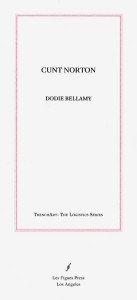 Cunt Norton
Cunt Norton
by Dodie Bellamy
Les Figues Press, November 2013
75 pages / $15 Buy from Les Figues Press or SPD
In Cunt Norton, Bellamy slices the canonical texts, lifts the raw skin, and slides all kinds of exciting things into the wound. Then she sews it back up. The result is a bulging, infested boil of sex and gender. The result is dirty love poems secreting out the orifices of our favorite fathers. (And one mother: Dickinson.)
Playing off of William S. Burroughs’ “cut-up” technique, Bellamy published Cunt Ups in 2001. Now she’s back at it, “cu(n)ting” up the 1975 Norton Anthology of Poetry. She selected thirty-three poets from the anthology and has re-imagined their texts: cutting and interspersing their words with hypersexual language. Poets ranging from Shakespeare to Ashberry still sound remarkably like themselves. They are recognizable—only sloppy with desire. Dripping wet.
The multi-gendered speakers in Cunt Norton end up sounding at turns psychotic, absurd, and boring—which comes pretty close to the actuality of sexual encounters and the language we use for desire. When the speaker in “Cunt Auden” says, “You be a good girl—I’ll take care of you—lay here in my hands with their many fingers. I’ve never ever given anybody help who didn’t come” (57), I want to barf at the sad, true, cliché of it. I feel the same with “Cunt Yeats,” which begins: “Gloom is in my mind, and I have to fuck you so bad. Good girl. Good girl” (40). “Cunt Blake” finishes with a hearty, “I poke out and in thee in so many places, the Air shreds to Rags and the Heavens tear” (21) and “Cunt Tennyson” promises to “fuck thy portal until mouths, foreheads, eyelids lose all boundaries” (35), both of which are equally hilarious and scary. I am reminded of all my worst sexual experiences.
Other pieces are full of rollicking, gender-bending, free-for-alls. Take, for example, “Cunt Frost:” “My clit stands still and dances—it looks huge, the outer lips filling the abyss’ void with emptiness. It cries out for you. […] My cock is normal size, ready to throw back without regret into your cunt or your large intestine” (43). The Great Men from the Norton Anthology are marionettes in Bellamy’s hands. Their reputations are at her disposal: their genitalia grow and morph, their gigantic desires never satisfied.
But Bellamy’s book is as much a political act as it is a book of poetry.
Let me offer an example why. Recently, after I participated in a reading, a fellow (male) poet asked me why I write about the same thing (sex) all the time. And why do I use such vulgar (cock, cunt, etc.) language? He suggested that I would get more publications if I varied my subject matter and cleaned up my language a bit.
Dodie Bellamy’s Cunt Norton exists as an answer to these kinds of questions. What I mean is: Dodie Bellamy is a woman who writes about sex. Who writes with verve and risk and imagination. Who isn’t afraid of language, or of dead white men, or the reverence we are supposed to have for them. Dodie Bellamy will not be silenced or ashamed. When Ariana Reines writes in the book’s introduction that this “could be the most joyful book on Earth” and it “made me feel so good I laughed so hard I cried,” what she may be articulating is how powerful it feels to witness a woman writing exactly how she wants to write, refusing to be silenced (by the canon, the patriarchy, any other poet’s aesthetic or ethical impulse).
October 14th, 2013 / 11:05 am
“Here, the obsolete game-as-medium lights its fires with the levity of camp. Its “new aesthetic” texture makes a tragicomic figure for contemporary poetry: an anachronistic genre of gaming while Rome burns—or dreaming Rome might burn, while in fact the empire goes on using stuff up outside as usual, pleasant or painful, awful but cheerful, the deflector shield quite operational when your friends arrive.” — David Gorin at the Boston Review considers the perverse negativity of those crud-ducks over at Claudius App, whose reading this Saturday 9/21 @ 9PM @ Reena Spaulings with Geoffrey G. O’Brien, Ariana Reines, and Keston Sutherland
you should definitely avoid, because just look at this animated GIF below they made for it that links directly to the Facebook event, which supposedly 118 people are going to, and look, I’ve been to Brooklyn, 118 people don’t even live in that pie shop, so, yeah, sure, keep murdering your brother, Claudius, it’s not like we don’t all know he’s the real king, and it’s not like we’re not going to keep putting slippers on your hands so you rub your eyes with your slippers when you wake up:
AIRY BABY: AN EQUAL TO THE ATE NIPPLE?//I worry/I don’t/Believe in Books/or do owly///
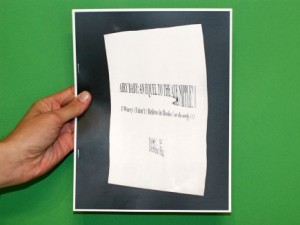 AIRY BABY: AN EQUAL TO THE ATE NIPPLE?//I worry/I don’t/Believe in Books/or do owly///
AIRY BABY: AN EQUAL TO THE ATE NIPPLE?//I worry/I don’t/Believe in Books/or do owly///
by Debbie Hu
Perfect Lovers Press, 2013
Edition of 100 / $5 Buy from Perfect Lovers Press
Debbie Hu wants you to think about baby, but all I can think about is what baby means for poetry. Mac Low starts off his 17th dance with the realization/instruction, “Someone has a baby or seems to have one.” Yes, obviously, we are always having some kind of baby. Notley—to whom Hu gives a much necessary shout out—once questioned, “Do you think women & men have kids in order to become immortal?” Why baby and why now? Are we making baby or is baby making us? Is it baby or the process of baby? Poets used to have babies now they have the Internet. Poets today let their babies do unfathomable things and leave their tiny baby lives in shambles. Contemporary Poet Jennifer Pieroni’s baby is primarily unlucky. In “Unlucky Babies,” she locks her baby out of the car and does not even allow for it to learn to type. Contemporary Poet Chelsey Minnis puts her baby on secret trial: “A baby on 9/11 was definitely in love with me and the parents did not know.” Hu’s baby lives in a similar place. It is part voyeur, part chauffeur, and part Gucci waiting in the wings. She writes:
the baby writing
machine, uploading a picture of herself on the internet, looking suburban.
Baby tries hacking her
relationships with words like love letters like the write combination will
crack the chains & change
a mind & minor upheval. But the effects are weird on the heart. So baby
goes back to writing
words for baby eyes only.
Hu’s baby has been taught to type because Hu’s baby is sometimes herself. Most often, though, baby is more of a symbolic bystander than a conduit. Baby is not always the most important thing but this book seems to be baby’s own creation. Perhaps it would be best to say that Airy Baby, is a kind of intertextual baby book; for the gentle omnipresent-omniscient baby, there is Ke$ha. There is charming organizational risk AKA formal chaos. There is the political as it battles with the personal. There is Cantonese then New Zealand. There are penises or shame. The narrative voice is distinctly cohesive yet polyvocal in a very necessary way.
Hu switches between the hyper casual and the “large idea” casual. She goes from “I wore a candy stripe dress / To the General Assembly and my pleaseface until I / Become a pop star my pleaseface is a dontrapeme pleaseface becuz / stay away my cunt smells terrible” to “it wounds me to read that she craves solitude and no / accountability, I feel like I am all despicable money” in just one page. She is sometimes Gurlesque transgressive in a blunt way like Ariana Reines, but most often a very idealistic type of gross-delicate, something that makes me think of Jenny Zhang’s first collection. Feng Sun Chen, from whom Hu quotes extensively, also comes to mind.
While very much composing a “poetry” book, the pieces are sometimes epistolary fragments and other times stolen bits from the pages of some tangentially yet brilliantly related thing. Airy Baby has titled sections, but they’re largely irrelevant; demarcations and page numbers become nobody’s business. Pieces start and stop wherever they’d like—pick back up then quit again. Baby, itself, operates similarly, waiting in the background for its opportunity to be the savior or the disgrace. To be the distraction. Baby is present for pages then not at all; it vanishes.
There are epiphanies laced throughout but, much like the emotional content of the book, these realizations are muted. The writing is laced with a certain sense of overwhelming comic unhappiness—the kind of thing that surfaces with any period of introspection. Hu jokingly alludes to David Foster Wallace in the book’s preface, and, like Wallace, uses footnotes to distract and “confuse” the reader. Here, though, it would seem that Hu employs these asides to soften the intensely emotional or personal. We are always returning to humor because humor is the only way to comprehend humanity.
August 30th, 2013 / 11:05 am
Let’s Plunder Baudelaire
My French hasn’t happened, barely has my English. What might allow me to translate Baudelaire any better? Have you seen the poorly Christian way being had with some of his lines?
Ses cris me déchiraient la fibre
is
Her screaming would drive me crazy
Her crying knifed the heart in me
Her screechings drilled me like a tooth
Her crying upset me horribly
Her crying tears me apart
Her nagging tore at every part of me
Save for contour, pasteurization, cluck by region, I know my reek, but this line from Le Vin de l’assassin or The Murder’s Wine or The Assassin’s Wine or The Wine of the Assassin or Sippy Vindicator is rarely caught right. Why should it be? Can we span our whip from known to felt? I’m saying it doesn’t wow to take a nineteenth century dandy with a peanut head, and of such a floral, copulating rigor, and pinch him to “drive me crazy.” He’s not young Britney batting curls. Baudelaire consistently scarfed his wig. What is the direct UN transcript of this lovely purple? The hissy fit runs deeper into Satan. He’s not workshopping; he’s pissing blood. I don’t care, because I’m translating the poem right now, out of French and without rhyme. I’m going to say Michael Robbins and few others on his level have by their genius made rhyming their property. I keep very afraid of my betters. Especially Robbins. I chose my last twenty dollars for his book when I was starving in Austin. It gave me a lot of meals to look up to, so if I rhyme it’s just a glitch in the word salad, sir. Please. I berate my own underneaths. I live in fear. Ariana Reines having brilliantly done legitimate work translating Baudelaire – let me distinguish, too: This is simply an act of poetic necrophilia, mid-lobotomy.

